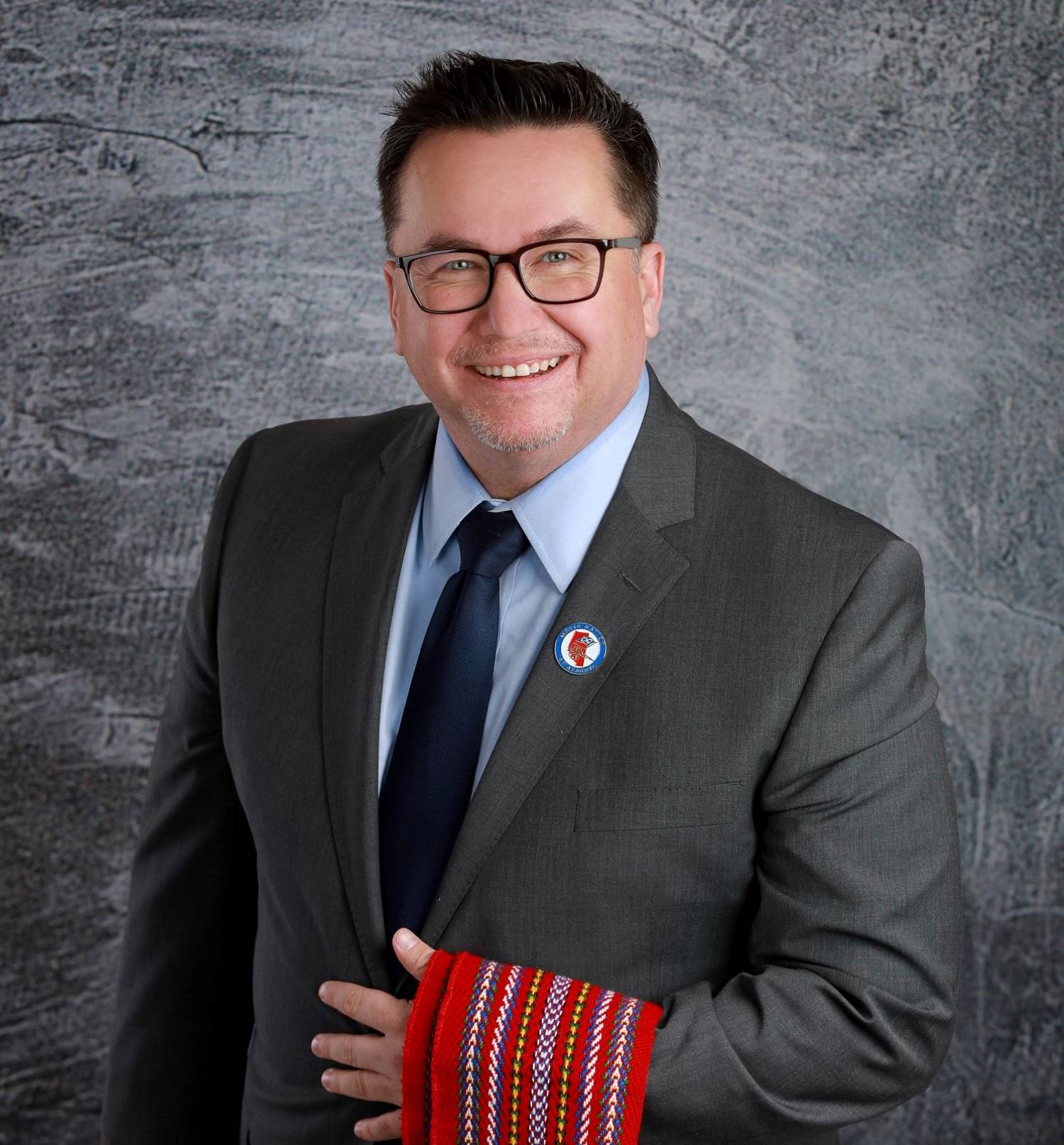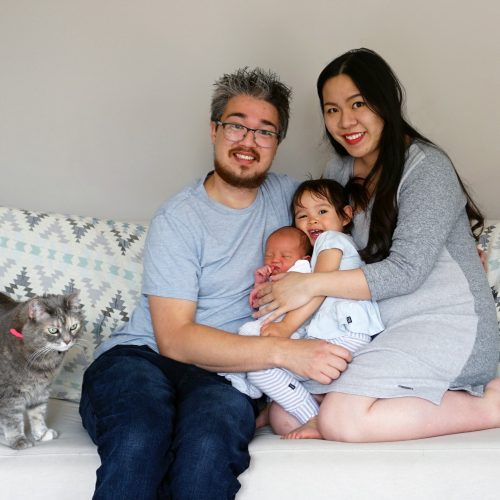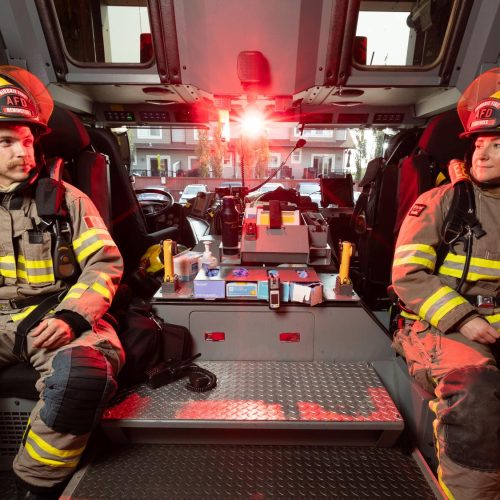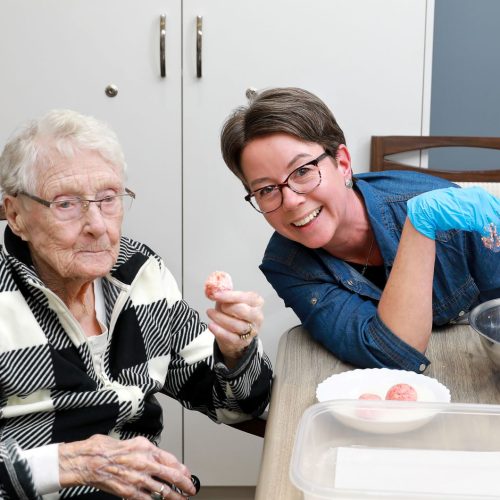It’s not the first time an entertainer has made the leap from performance to politics, but for Lawrence Gervais, president of the Métis Nation of Alberta, Region 3, it’s practically a literal one.
“I was probably only 12 when I walked into the local dance studio in Prince George, to take this girl to a movie. I was just standing in this room full of girls and I remember thinking, ‘Well, this is interesting.’”
Gervais wasn’t a dancer, but was asked if he’d participate in the production they were doing for a local telethon. At the time, he didn’t realize he had the build and temperament for classical ballet, and was soon being sought out by other companies, including the Alberta Ballet and the Royal Winnipeg Ballet. Male dancers are rare. A male Indigenous dancer? Almost unheard of.
“After 17 years eating and breathing ballet, plus a few injuries, I asked myself how would I ever retire? There are no jobs for dancers in the arts after their career. What I discovered, however, being Indigenous, organizations started coming to me. Which is how I evolved into the community work I do now.”
This career path began in the worst postal code in Canada – Main and Hastings in Vancouver. He worked the streets with the Indigenous community during the day and was involved with classical ballet in the evenings.
“I eventually became the executive director of the Friendship Centre there, then opened my own drop-in centre for the Elders, sitting in healing circles everyday. No one in ballet knew what I was doing during the day, and no one at my day work knew anything about the ballet.” He chuckles. “I was kind of incognito.”
What intrigued Gervais most at the time were the stories he was hearing. How people got to where they were, what influenced them.
“When people talk to me about reconciliation, it’s all about sitting down with the person, and listening to their truth. When we take the time to do that, we’ll progress in this reconciliation thing. Corporate businesses and government have it down on paper, but it doesn’t really work until you take the time to listen meaningfully to people’s stories.”
Wading into the murky waters of Indigenous experience and history, Gervais shares his take on being Métis.
“I remember being chased home by white kids and being chased home by native kids when I was a kid. Métis aren’t one or the other, we know our place. We’re hesitant to say we’re Métis; we just say we’re French. And Alberta is way behind other provinces in this area. I was speaking with a Jewish fellow recently who told me the Jewish experiences mirrors the Métis in that many don’t acknowledge who they truly are either.”
The Supreme Court of Canada ruled what is called the Daniels Decision in 2016, which declared the federal and provincial governments have a fiduciary duty to Métis and non-status Indians. In 2016, the federal government signed the Métis Nation Accord.
“Now,” explains Gervais, “we have four meetings a year with the prime minister. We have signed significant agreements that will propel us toward the goal of self-government. These are huge advancements … and even the Métis Nation has to adapt to that.
“What’s curious about Métis people is their hesitation to identify as Indigenous, because then they will be related to the First Nations experience, and they don’t want to be involved in that.
“They also don’t want to be discriminated against. They didn’t grow up on a confined piece of land, with the poverty, the water issues … they grew up just like everyone else.” However, by becoming registered members, Métis people have access to education and scholarship programs, health and housing programs and a host of other resources.
Gervais was elected as vice-president of Métis Nation Alberta Region 3 in 2014 and has since become president. Region 3 is large, bordered to the north by the Red Deer River and south to the U.S. border.
When not advocating for the Métis Nation, he laughs and says he’s just the same as everyone else.
“I’m a husband, dad to twins who are six years old. We go swimming at Genesis. We play T-ball and soccer. My wife, who I’ve known since Grade 9, and I moved to Airdrie because there’s so much to do athletically here. I love it here. It’s not Calgary, but it’s not far from Calgary. This is a great town. We wanted something more along the lines of where we grew up in Prince George.”
Gervais is also an avid Montreal Canadiens and Toronto Blue Jays fan.
He joins Ross ‘Memphis’ Pambrun on a regular podcast called The Squeaky Wheel that can be found on YouTube. It’s a fun, informative, sometimes cheeky 45 minutes of most things Métis.
Gervais’ dream is to open a Métis cultural centre right here in Airdrie.
“I just want to tell our story. Be visible. In schools, at conferences, a Stampede barbecue. I’d like to have a variety show, by Métis people.
“We’re available to talk to everyone. We are having our provincial assembly at the Grey Eagle Casino in August. We’re also going to hold a rodeo that same weekend in Balzac. I’m excited about our future as a nation.”
The man needs to be cloned.
To learn more, visit metis3.org






